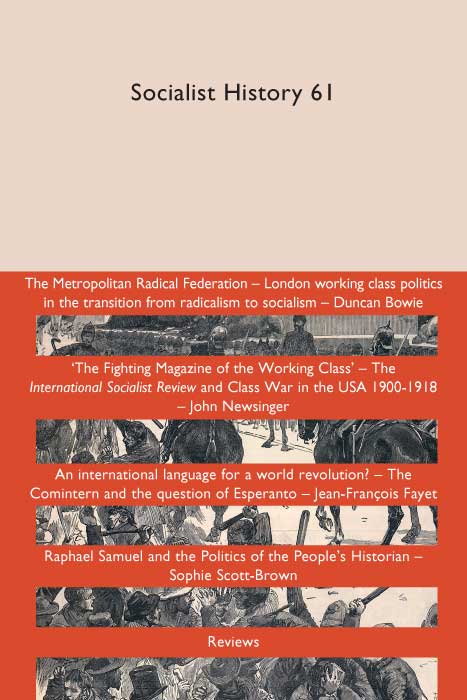
An International language for a world revolution?
Socialist History - Print ISSN 0969-4331 - Online ISSN
Volume 2022 Number 61
An International language for a world revolution?
Jean-François Fayet pages 56‑75
Abstract
The international language Esperanto was invented by Ludwik L. Zamenhof in 1887. Although it originated in the Russian Empire, it soon aroused the hostility of the Tsar’s regime. After the revolutions of 1917, workers’ Esperantist associations began to press various Soviet institutions, and especially the Communist International, to create the conditions for effective proletarian internationalism. But behind the apparently secondary question of an international language loomed the question of the control of international communism and the predominance of polyglot intellectuals in its governing bodies. The whole strategy of the Communist International’s Executive towards the Esperantists was to hinder their work in many ways, to prevent the introduction of an international language, without ever officially condemning Esperanto or the Esperantists.
SORRY - you are not registered as being permitted online access to the full text of this article
You have the following options:
- If you are viewing this via an institution or academic library you can ask that your institution takes out a Subscription to this journal.
- If you already have a Personal Subscription please login below
Forgotten your username / password? Click here to locate
- Subscribe to Socialist History via the Socialist History Society website. An annual UK print subscription is £30.00.
To cite this article
Jean-François Fayet (2022) An International language for a world revolution?, Socialist History, 2022(61), 56-75
